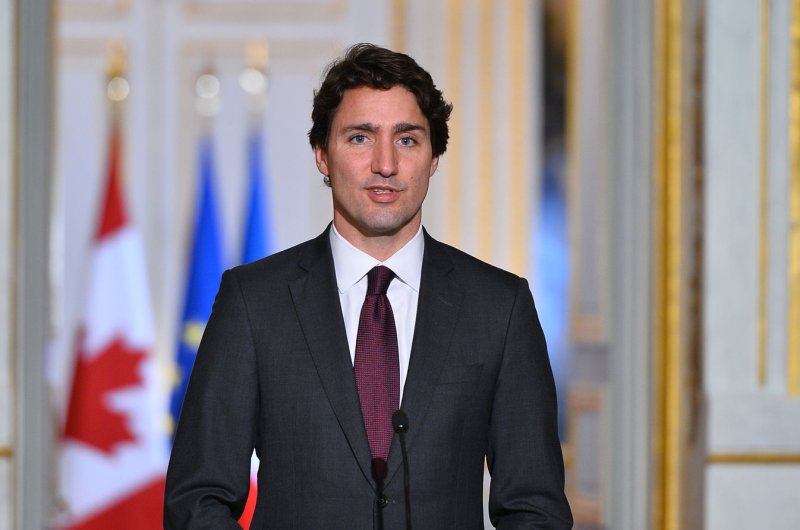Canadian Prime Minister Justin Trudeau on Monday announced Canada would halt airstrikes against the Islamic State but would triple its commitment of military forces training Iraqi troops. File Photo by David Silpa/UPI |
License Photo
OTTAWA, Feb. 9 (UPI) -- Canadian Prime Minister Justin Trudeau announced his government would halt airstrikes against the Islamic State but increase its commitment of military personnel training Iraqi forces.
Speaking in Ottawa on Monday, Trudeau said Canada would cease conducting airstrikes on Feb. 22.
Canada's six CF-18 Hornet fighter-bombers will at that time be pulled from the U.S.-led coalition effort, which has been responsible for more than 10,000 airstrikes against IS militants between August 2014 and Wednesday.
Canada, though, is tripling its number of military trainers to the region from 69 to more than 200 -- and its overall forces from 230 to 600. This includes troops who will mark targets for coalition partners and support personnel and aircrews for one CC-150 Polaris aerial refueling aircraft and up to two CP-140 Aurora aerial surveillance aircraft.
"It is important to understand that while airstrike operations can be very useful to achieve short-term military and territorial gains, they do not on their own achieve long-term stability for local communities," the CBC quoted Trudeau as saying. "Canadians learned this lesson firsthand during a very difficult decade in Afghanistan, where our forces became expert military trainers renowned around the world."
Canada joined coalition airstrikes against IS forces in Iraq on Nov. 2, 2014, and conducted more than 1,300 sorties over the next 15 months -- including in Syria the following March.
Trudeau said the new policy would be debated and voted on once the House of Commons resumed Feb. 16. If passed, Canada's military mission would continue for two years before being evaluated and debated in parliament once again.
The CBC quoted Interim Conservative Party leader Rona Ambrose as saying the prime minister was taking "a shameful step backward from our proud traditions by pulling our CF-18s and Canada out of a combat role against the greatest terror threat in the world."
Hélène Laverdière, foreign affairs critic with the New Democratic Party, was also critical. The CBC quoting her as saying Trudeau's Liberal Party was sending Canadian troops on an "open-ended combat military mission in Iraq," and that Canada would "still be directly supporting the bombings through refueling and targeting support."
Trudeau's announcement comes less than a week after a report suggested U.S.-led coalition airstrikes had killed more civilians in Iraq and Syria than the 21 documented cases it has acknowledged.
Airwars, an independent monitoring group that tracks allegations of civilians casualties, said the number of on-the-ground deaths is likely more than 1,000.
Chris Woods, head of Airwars, said the "military is starting to believe their own myth of absolute precision."
"It is probably fair to say that the coalition is taking more care than we have ever seen in any air war in recent history, but that's relative precision and civilians are still dying ... hundreds of them," GlobalPost quoted him as saying.















